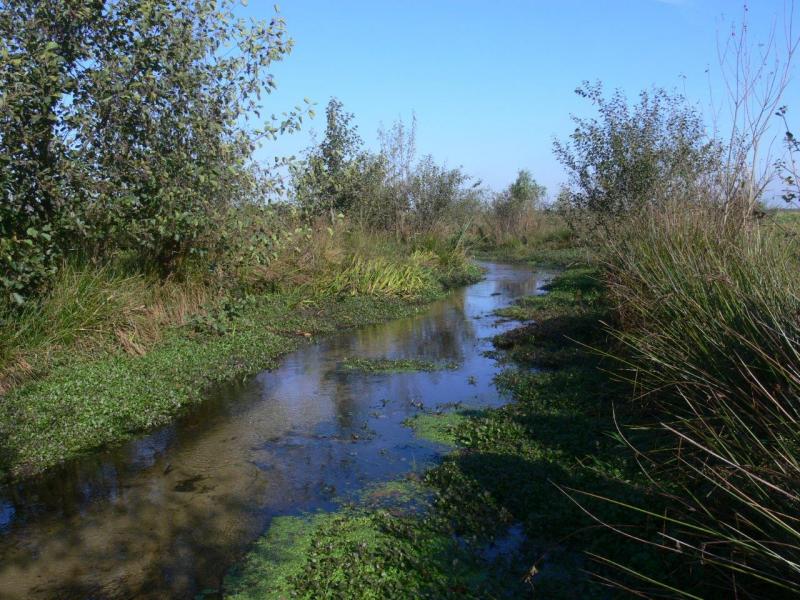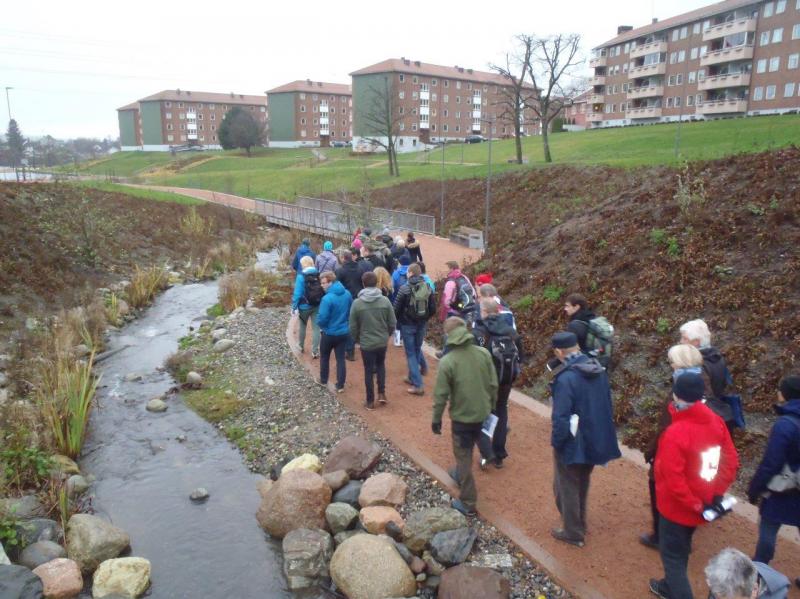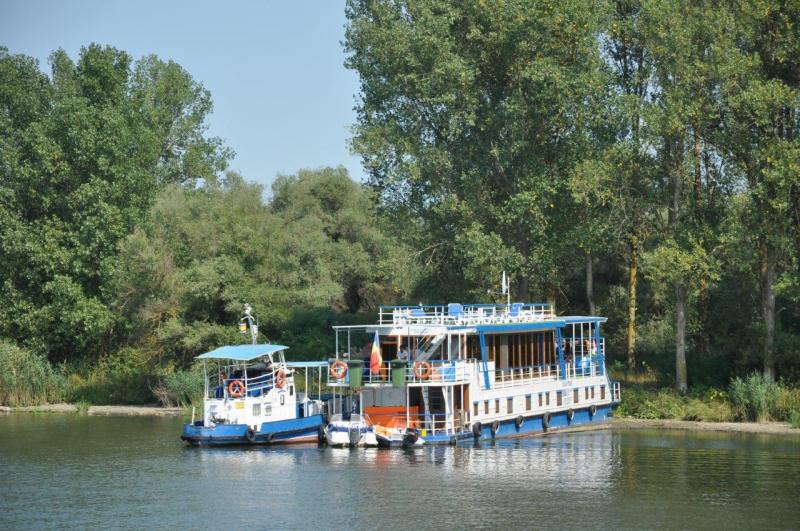Dear reader,
The sixth REFORM newsletter informs you about our events in 2015, summarises the newest deliverables, interviews Peter Pollard (SEPA) on how to tackle hydromorphological issues and presents PhD studies and the Swiss restoration case study in the River Thur. The 4-yr REFORM project started in November 2011 and is now already in its final year. This year the emphasis is on making our results available for application after 3 years of work that were mostly dedicated to compiling relevant existing and generating new scientific knowledge. Our current focus on application goes hand in hand with a number of events that REFORM organises and supports.
For young scientists and Ph.D. students a summer school on "Restoring Regulated Streams Linking Theory and Practice" is organised (27-29 June 2015, Wageningen, the Netherlands). The summer school is immediately followed by our International Conference “Novel Approaches to Assess and Rehabilitate Modified Rivers” from June 30 to July 2, 2015, also to be held in Wageningen. The programme of the conference will feature 13 excellent keynotes and over 50 regular presentations. The registration is open and special hotel rates are available until early May. If you are interested then do not wait too long to register and visit the conference website. In September 2015, REFORM will also organise a workshop by invitation to address sediment management in connection with environmental flows. Finally, the working group ECOSTAT of the WFD Common Implementation Strategy plans to host a workshop on hydromorphology in connection to ecological status in October 2015 to which REFORM will contribute.
Since our last newsletter, the following deliverables are now ready and available on our website:
- D3.2 Biological responses to degraded hydromorphology and multiple stress
- D4.3 Effects of large- and small-scale river restoration on hydromorphology and ecology
- D4.4 Assessing social benefits of river restoration
We invite you to consult these deliverables and hope they are of use to your work. Of course, we welcome feedback on our results. Three deliverables are introduced in separate items of this newsletter. The role of vegetation in “Plants as physical ecosystem engineers” (based on D2.2), the benefits of type and scale of restoration projects in “Effects of restoration on hydromorphological and biological response variables and factors influencing restoration outcomes” (based on D4.3) and synergy and trade-offs of restoration with other demands in “Synergistic approaches to river restoration” (based on D5.3 that will be available late March/early April).

Figure 1: Plants as ecosystem engineers: aquatic vegetation directs the flow in small streams (Photo: Tom Buijse)
Within REFORM young scientists are given the opportunity for Ph.D. research. In this edition, two Ph.D. students present their work: Luiza Tylec (Poland) investigates the valorization of restored wetlands ecosystem services to support better decision making in restoration planning and Benjamin Kupilas (Germany) studies the benefits of stream restoration on the food-web structure and the self-purification potential.
REFORM has organised several events for stakeholders (see previous newsletters). The most recent workshop was held in Kuwasy (Biebrza Valley, Poland) on September 15-17, 2014. The workshop focused on the role of groundwater for river – floodplain ecosystems and brought 18 invited experts from Denmark, England, Germany, The Netherlands, Poland, Scotland, Spain and Sweden together. The aim of the workshop was to critically review the European level to consider groundwater-surface water interactions in the practice of water management and environmental policy implementation. The conclusions will be made available soon in a policy discussion paper.
The key expert on rivers and river restoration interviewed for this edition of our newsletter is Peter Pollard (Scottish Environment Protection Agency). Peter is one of the key persons within ECOSTAT to progress the debate on hydromorphology. Given that improving hydromorphological status most often implies changes in land use or ownership he advocates building partnerships as the way forward. Peter Pollard is member of the Advisory Board of REFORM and will present a keynote at our conference.
Figure 2: Benefits of protecting near-natural river deltas: ecotourism in the Danube Delta (Romania) (Photo: Tom Buijse)
As always we present one of our case studies on river restoration. This time one of the most prominent examples in Switzerland: widening and rewilding the River Thur. The story clearly demonstrates the improvement of ecological status within the restored stretch, but at the same time puts these benefits into perspective because the 1.5 km project only covers just over 1% of the total 130 km regulated river.

Figure 3: Socio-economic benefits of urban stream restoration in Oslo (Norway): prices of property have risen substantially (Photo: Tom Buijse)
Also this time we hope you enjoy reading our newsletter. Of course, we always appreciate it when you forward our newsletter to interested colleagues. If you have comments or questions then please contact us. At the same time we invite you to contribute. Thus please let us know if you would like to use our website or newsletter to announce an event or present a relevant study or report.
On behalf of the REFORM team,
Tom Buijse
REFORM Coordinator
p.s. If you do not yet receive our newsletter automatically and are interested to do so, then please visit our home page (www.reformrivers.eu) where you can subscribe.

